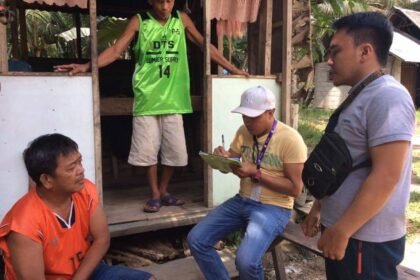Field market research refers to the process of collecting information, data, and insights directly from the target audience or consumers by physically interacting with them in various locations or settings. This type of research involves going out into the “field” to observe consumer behavior, conduct surveys, interviews, and gather feedback through direct engagement. Field market research is often used to understand consumer preferences, market trends, product feedback, and competitive analysis by gathering real-time data from the market itself. It can be conducted through methods such as in-person interviews, focus groups, observational studies, and intercept surveys conducted at specific locations like malls, events, or public spaces.
Market research is a field that has evolved significantly over time, driven by changes in technology, consumer behavior, and business needs. Here is a brief history of market research:
1. Early Beginnings: Market research as a formal discipline can be traced back to the early 20th century, with the advent of mass production and the rise of consumerism. Companies began to realize the importance of understanding their target markets and gathering data to make informed business decisions.
2. Rise of Surveys: In the 1920s and 1930s, surveys became a popular method for conducting market research. Researchers used questionnaires and interviews to collect data from consumers about their preferences, buying habits, and opinions.
3. Post-WWII Expansion: After World War II, market research saw significant growth as companies sought to capitalize on the post-war economic boom. The development of statistical techniques and sampling methods helped researchers gather and analyze data more effectively.
4. Computerization and Data Analysis: The 1960s and 1970s witnessed the computerization of market research. Advances in technology allowed researchers to process and analyze larger volumes of data, leading to more sophisticated market segmentation and targeting strategies.
5. Digital Revolution: The advent of the internet in the 1990s revolutionized market research once again. Online surveys, data analytics tools, and digital platforms enabled researchers to reach a wider audience, collect real-time data, and conduct more in-depth analysis.
6. Big Data and Analytics: In the 21st century, market research has been shaped by the rise of big data and advanced analytics. Companies now have access to vast amounts of structured and unstructured data, allowing for more granular insights into consumer behavior, trends, and preferences.
7. Mobile and Social Media: The proliferation of smartphones and social media has further transformed market research. Mobile surveys, social listening tools, and sentiment analysis techniques have become essential for understanding consumer sentiment and engagement.
8. AI and Machine Learning: Today, artificial intelligence (AI) and machine learning (ML) are playing a significant role in market research. These technologies enable predictive modeling, personalized recommendations, and automation of data collection and analysis processes.
Overall, market research has evolved from simple surveys to a sophisticated discipline that leverages cutting-edge technology and data-driven methodologies to help businesses make strategic decisions and stay competitive in dynamic markets.
The term “fieldwork” in market research can be known by several other names or related terms depending on the context and the specific tasks involved. Some common alternative terms or related concepts in field market research include:
1. Data Collection: This term is often used interchangeably with fieldwork, especially when referring to the actual gathering of data through surveys, interviews, observations, or other methods.
2. Field Operations: This term can encompass a broader range of activities beyond just data collection, including logistical planning, coordination with field teams, and ensuring the smooth execution of research in real-world settings.
3. Field Services: This term is sometimes used to describe the services provided by agencies or firms that specialize in conducting fieldwork for market research studies. It may include activities such as sampling, recruiting participants, conducting interviews, and managing field teams.
4. On-the-Ground Research: This phrase emphasizes the hands-on nature of conducting research in physical locations, as opposed to desk-based or online methods.
5. Primary Research: While not specific to fieldwork, primary research generally refers to the collection of original data directly from sources, which often involves fieldwork in market research contexts.
6. Outreach and Engagement: These terms highlight the active efforts made during fieldwork to reach out to target audiences, engage with participants, and gather insights firsthand.
7. Remote Data Collection: In contrast to traditional fieldwork that involves in-person interactions, remote data collection methods such as online surveys or telephone interviews are sometimes used, especially when physical access is limited or impractical.
These terms are often used interchangeably or in conjunction with each other depending on the nature of the market research project, the methodologies employed, and the specific stages of the research process.
Fieldwork in market research involves collecting data directly from consumers, businesses, or other relevant entities in their natural environments. It’s an essential part of understanding market trends, consumer behaviors, and industry dynamics. Here are some common use cases of fieldwork in field market research:
1. Observational Studies: Researchers observe and record behaviors, interactions, and trends in real-time. This can involve observing how customers navigate a store, how people use a product in their homes, or how employees interact with customers in a service setting.
2. In-Store Intercepts: Researchers approach customers in retail stores to gather feedback on products, services, or shopping experiences. This can include surveys, interviews, or simply observing purchasing decisions and browsing habits.
3. Exit Surveys: Conducted as customers leave a store, restaurant, or event, exit surveys capture immediate feedback about the customer experience. This data can provide insights into satisfaction levels, reasons for visiting, and areas for improvement.
4. Mystery Shopping: Trained individuals pose as regular customers to evaluate the quality of service, product knowledge, and overall customer experience. Mystery shopping helps companies assess and improve frontline interactions.
5. Ethnographic Research: Immersive studies that involve living among or closely observing a specific group of people (e.g., consumers in a particular demographic or users of a certain product). Ethnography aims to uncover deep insights into behaviors, values, and needs.
6. Product Testing: Fieldwork can involve hands-on testing of products or prototypes in real-world settings. This could include beta testing new software with users, trying out new food products in test markets, or evaluating the usability of a physical device.
7. Competitor Analysis: Researchers gather intelligence on competitors’ strategies, pricing, promotions, and customer experiences. This can involve visiting competitors’ stores, analyzing their online presence, and gathering information from industry events.
8. Customer Journey Mapping: By following customers through their entire experience with a brand, researchers can create detailed customer journey maps. This helps businesses understand touchpoints, pain points, and opportunities for enhancing customer satisfaction and loyalty.
9. Geographic Research: Fieldwork may involve studying how location influences consumer behaviors and preferences. This could include analyzing foot traffic patterns, studying regional variations in product demand, or assessing the impact of local events on consumer spending.
10. Focus Groups: While often conducted in controlled environments, fieldwork can also involve taking focus groups into the field. This might mean gathering a group of consumers at a specific location relevant to the research topic (e.g., a shopping mall for retail feedback or a cafe for beverage preferences).
These are just a few examples of how fieldwork is used in field market research. The specific methods and approaches chosen depend on the research objectives, target audience, and industry context.
Fieldwork in market research refers to the process of collecting data directly from consumers, businesses, or other relevant stakeholders. Over the years, various trends have emerged in fieldwork methodologies, driven by technological advancements, changing consumer behavior, and evolving research needs. Here are some key trends in fieldwork in market research:
1. Digital Transformation: One of the most significant trends is the digital transformation of fieldwork. This includes online surveys, mobile app-based data collection, social media monitoring, and other digital tools that facilitate real-time data collection and analysis.
2. Automation and AI: Automation and artificial intelligence (AI) technologies have revolutionized fieldwork by streamlining processes, reducing human error, and enabling faster data analysis. AI-powered chatbots, sentiment analysis tools, and predictive analytics are increasingly used in market research fieldwork.
3. Mobile Research: With the widespread use of smartphones and tablets, mobile research has become a dominant trend. Mobile surveys, in-app feedback mechanisms, and location-based data collection provide researchers with insights into consumer behavior in real-world contexts.
4. Remote Data Collection: The COVID-19 pandemic accelerated the adoption of remote data collection methods such as virtual focus groups, online communities, and video interviews. These methods allow researchers to reach global audiences without geographical limitations.
5. Big Data and Analytics: Market researchers are leveraging big data analytics to derive insights from large volumes of structured and unstructured data. Advanced analytics techniques like machine learning and data mining help uncover patterns, trends, and correlations in fieldwork data.
6. Behavioral Research: There is a growing emphasis on understanding consumer behavior through observational research, eye-tracking studies, biometric sensors, and neuroscientific techniques. These methods provide deeper insights into consumers’ subconscious motivations and decision-making processes.
7. Ethnographic Studies: Ethnographic research techniques, such as immersive interviews, participant observation, and diary studies, are gaining popularity for understanding cultural nuances, social trends, and consumer lifestyles.
8. Cross-platform Integration: Market researchers are integrating data from multiple sources, including social media, e-commerce platforms, CRM systems, and offline interactions, to gain a holistic view of customer journeys and market dynamics.
9. Privacy and Data Security: With increasing concerns about data privacy and security, market research firms are implementing stringent measures to protect respondents’ sensitive information and comply with regulatory requirements such as GDPR and CCPA.
10. Agile Research: Agile methodologies, borrowed from software development, are being applied to market research to enable iterative, flexible, and data-driven decision-making. Agile research frameworks prioritize collaboration, rapid prototyping, and continuous feedback loops.
These trends indicate a shift towards more efficient, data-driven, and customer-centric approaches to fieldwork in market research, enabling businesses to make informed decisions in a dynamic and competitive environment.
Fieldwork in market research can be both rewarding and challenging. Some of the key challenges faced during fieldwork include:
1. Recruitment Difficulties: Finding and recruiting the right participants for studies can be challenging. This is especially true for niche or hard-to-reach demographics.
2. Participant Engagement: Keeping participants engaged throughout the research process, from initial contact to completion of tasks or surveys, can be difficult. Factors such as respondent fatigue or lack of interest can impact data quality.
3. Data Quality: Ensuring the accuracy and reliability of data collected during fieldwork is crucial. Poorly trained interviewers or ambiguous survey questions can lead to biased or inaccurate responses.
4. Logistical Issues: Managing logistics such as scheduling interviews, arranging focus groups, or conducting in-person observations can be complex and time-consuming, especially in geographically dispersed locations.
5. Cultural Sensitivity: Conducting fieldwork in diverse cultural settings requires sensitivity and awareness of local customs, norms, and language barriers. Failure to address these factors can lead to misinterpretation of data or unintended consequences.
6. Technology Challenges: Dependence on technology for data collection (e.g., mobile surveys, online panels) can pose challenges such as technical glitches, data security concerns, or limited internet connectivity in certain areas.
7. Budget and Time Constraints: Fieldwork often operates within tight budgets and timelines. Balancing cost-effectiveness with the need for comprehensive data collection can be a significant challenge.
8. Ethical Considerations: Ensuring ethical standards in participant recruitment, data collection, and analysis is essential. Issues such as informed consent, privacy protection, and data confidentiality require careful attention.
9. Changing Market Dynamics: Markets are dynamic and can change rapidly. Adapting fieldwork strategies to account for evolving trends, competitor actions, or external factors is a constant challenge.
10. Data Analysis Complexity: Collecting data is only part of the process; analyzing and interpreting the data accurately is equally important. Complex data sets, diverse data sources, and varying analysis techniques can present challenges in deriving meaningful insights.
To address these challenges, market researchers often employ strategies such as rigorous training for fieldworkers, leveraging technology for data collection and analysis, ensuring diversity and inclusivity in participant recruitment, and maintaining transparency and ethical standards throughout the research process. Flexibility, adaptability, and a proactive approach to problem-solving are also key attributes for successful fieldwork in market research.
Conducting fieldwork in rural versus urban areas presents distinct challenges and opportunities. The choice between rural and urban settings depends on the specific research objectives, the nature of the study, and the resources available. Here are some key considerations for conducting fieldwork in each type of area:
Rural Areas:
1. Access and Transportation:
– Limited infrastructure and transportation options may require careful planning for travel and logistics.
– Remote locations may necessitate off-road vehicles or specialized modes of transportation.
2. Community Engagement:
– Building rapport with rural communities often requires patience, respect for local customs, and a willingness to invest time in relationship-building.
– Community leaders and local authorities play a significant role in facilitating access and gaining trust.
3. Data Collection Challenges:
– Limited internet connectivity and technological resources may impact data collection methods.
– Language barriers or dialects unique to rural areas may require interpreters or translators.
4. Natural Environment:
– Opportunities to study unique ecosystems, agricultural practices, or environmental issues specific to rural areas.
– Weather conditions and seasonal variations can influence fieldwork schedules and logistics.
5. Ethical Considerations:
– Respect for cultural norms, land ownership, and traditional knowledge is crucial.
– Informed consent processes may need to be adapted to account for literacy levels and cultural sensitivities.
Urban Areas:
1. Diverse Populations:
– Access to a wide range of demographics, socioeconomic groups, and cultural backgrounds for research sampling.
– Urban areas offer opportunities for comparative studies and exploring complex social dynamics.
2. Infrastructure and Resources:
– Better access to technology, research facilities, and support services.
– Public transportation and networking opportunities may facilitate fieldwork logistics.
3. Ethical Challenges:
– Privacy concerns, anonymity, and informed consent can be more complex due to denser populations and diverse communities.
– Ensuring inclusivity and representation across diverse urban populations is essential.
4. Data Collection Methods:
– Advanced data collection techniques such as GIS (Geographic Information Systems), digital surveys, and social media analytics are more feasible.
– Urban areas may offer more opportunities for observational studies and behavioral research.
5. Environmental Factors:
– Urban pollution, noise levels, and other environmental factors may influence research outcomes and participant experiences.
– Consideration of urban planning and development policies becomes relevant in certain types of research.
Ultimately, the choice between rural and urban fieldwork depends on the research objectives, the population under study, logistical considerations, and ethical responsibilities. Researchers should carefully assess these factors to design effective and ethical fieldwork experiences.
Conducting fieldwork in multiple countries can be a complex but rewarding endeavor. Whether you’re conducting research, business activities, or any other form of fieldwork, here are some steps and considerations to keep in mind:
1. Define your Objectives:
Clearly define the purpose and goals of your fieldwork in each country. This will help you stay focused and ensure that you collect relevant data or achieve your desired outcomes.
2. Research Regulations and Requirements:
Understand the legal and regulatory requirements for conducting fieldwork in each country. This includes obtaining necessary permits, visas, ethical approvals (for research), and compliance with local laws.
3. Build Local Networks:
Establish contacts and build relationships with local organizations, institutions, or individuals who can provide insights, support, and access to resources. This can include academic institutions, local businesses, NGOs, or government agencies.
4. Plan Logistics:
Plan logistics such as travel arrangements, accommodation, transportation, and communication tools. Consider cultural differences, time zones, and language barriers when organizing logistics.
5. Conduct Pre – Fieldwork Research:
Conduct thorough research about each country’s socio-cultural, economic, political, and historical context. This will help you understand the local context and tailor your fieldwork approach accordingly.
6. Adapt Methodologies:
Adapt your research methodologies, data collection techniques, and communication strategies to suit each country’s context, culture, and language. Be open to using a mix of quantitative and qualitative methods as needed.
7. Consider Ethical and Cultural Sensitivities:
Respect cultural norms, values, and traditions when interacting with local communities. Be mindful of ethical considerations, such as informed consent, confidentiality, and data privacy, especially in cross-cultural settings.
8. Manage Risks:
Identify potential risks associated with conducting fieldwork in each country, such as health and safety concerns, political instability, or logistical challenges. Develop risk management plans and contingency measures to mitigate these risks.
9. Maintain Communication:
Maintain regular communication with stakeholders, collaborators, and team members across countries. Use technology such as email, video conferencing, or project management tools to stay connected and coordinate activities effectively.
10. Analyze and Synthesize Findings:
After completing fieldwork in each country, analyze and synthesize the findings to draw meaningful conclusions and insights. Compare and contrast results across countries to identify patterns, similarities, and differences.
11. Disseminate Results:
Disseminate your findings through academic publications, reports, presentations, or other relevant channels. Share insights with stakeholders, policymakers, and the broader community to contribute to knowledge exchange and decision-making.
By following these steps and considerations, you can effectively plan and conduct fieldwork in multiple countries, ensuring that your efforts are well-organized, ethical, culturally sensitive, and productive.
Fieldwork research is a crucial aspect of understanding consumers, markets, and trends for brands. Here are some key considerations for brands conducting fieldwork research:
1. Clear Objectives: Define clear research objectives before starting fieldwork. Understand what specific information or insights you aim to gather and how it will benefit your brand.
2. Target Audience Identification: Identify and define your target audience carefully. Understand their demographics, preferences, behaviors, and needs to tailor your research approach effectively.
3. Methodology Selection: Choose the most suitable research methodology for your objectives and target audience. Common methodologies include surveys, interviews, focus groups, observational studies, and ethnographic research.
4. Ethical Considerations: Ensure that your fieldwork adheres to ethical guidelines. Obtain informed consent from participants, maintain confidentiality, and respect privacy throughout the research process.
5. Research Tools and Technologies: Utilize appropriate tools and technologies to collect and analyze data efficiently. This may include survey software, data analytics platforms, recording devices, etc.
6. Fieldwork Logistics: Plan and organize fieldwork logistics meticulously. This includes scheduling, participant recruitment, location selection, travel arrangements, and budget management.
7. Data Quality Assurance: Implement measures to ensure data quality and reliability. Validate responses, minimize bias, and conduct regular checks to maintain the accuracy of collected data.
8. Researcher Training: Train researchers and fieldwork staff adequately to ensure they understand the research objectives, methodologies, ethical guidelines, and data collection techniques.
9. Participant Engagement: Foster a positive and engaging environment for participants during fieldwork. Encourage open communication, active participation, and feedback to gather rich insights.
10. Data Analysis and Interpretation: Analyze collected data rigorously using appropriate statistical or qualitative analysis techniques. Interpret findings accurately to derive meaningful conclusions and actionable recommendations for your brand.
11. Report and Presentation: Prepare a comprehensive research report highlighting key findings, insights, and recommendations. Present findings effectively to stakeholders using visual aids, charts, and presentations.
12. Iterative Approach: Consider fieldwork research as an iterative process. Use insights from initial research phases to refine subsequent research activities and strategies for continuous improvement.
By considering these key aspects, brands can conduct effective fieldwork research that yields valuable insights and contributes to informed decision-making.
Partnering with a market research company can offer several advantages to businesses looking to understand their target audience, improve their products or services, and make informed decisions. Here are some key advantages of partnering with a market research company:
1. Expertise and Experience: Market research companies specialize in gathering, analyzing, and interpreting data related to markets, consumer behavior, trends, and competition. They have the expertise and experience to design research studies, collect data using various methodologies, and extract meaningful insights.
2. Objective Perspective: Market research companies provide an objective perspective on your market, customers, and competition. Since they are external to your organization, they can offer unbiased insights and recommendations based on data rather than internal assumptions or biases.
3. Access to Resources: Partnering with a market research company gives you access to resources such as advanced analytics tools, databases, industry benchmarks, and research methodologies that may not be readily available within your organization. This access can help you gather comprehensive and accurate data for analysis.
4. Cost-Effectiveness: Outsourcing market research can be more cost-effective than conducting research in-house. Market research companies often have economies of scale, which means they can spread the costs of research across multiple clients, making their services more affordable for individual businesses.
5. Time Savings: Market research companies can conduct research more efficiently and quickly due to their specialized skills and resources. This can save your organization valuable time, allowing you to focus on other strategic priorities and initiatives.
6. Customized Solutions: A reputable market research company will work closely with you to understand your specific business goals, challenges, and target audience. They can tailor research methodologies, survey instruments, and analytical approaches to provide customized solutions that address your unique needs.
7. Risk Mitigation: Market research helps businesses make data-driven decisions, reducing the risks associated with launching new products, entering new markets, or making significant business investments. By partnering with a market research company, you can minimize uncertainties and make more informed choices.
8. Competitive Advantage: Leveraging market research insights can give your business a competitive advantage by helping you identify market trends, consumer preferences, and areas for improvement before your competitors do. This knowledge can inform your strategic planning and marketing efforts.
Overall, partnering with a market research company can be instrumental in enhancing your market understanding, driving business growth, and staying competitive in today’s dynamic business environment.



